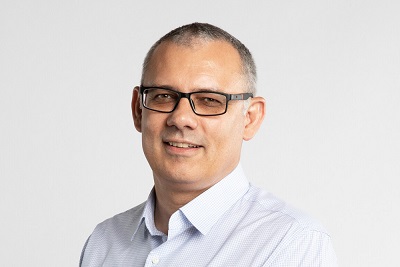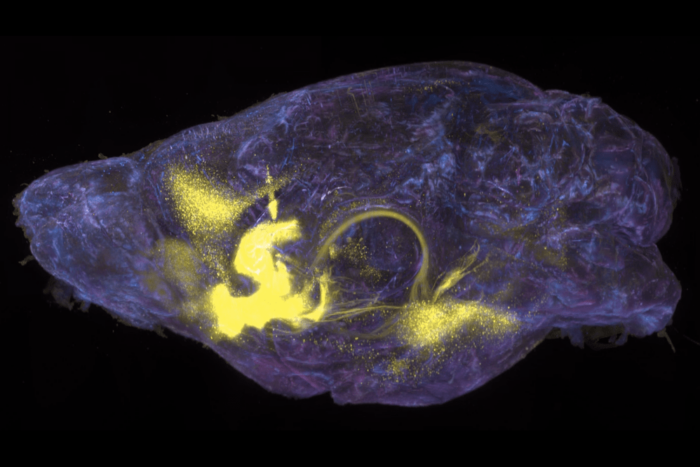Hidesaburo Hanafusa, professor emeritus, dies at 79
by TALLEY HENNING BROWN
As an innovative researcher, spirited colleague and devoted mentor, Hidesaburo Hanafusa’s renown reached around the globe. Though he retired from The Rockefeller University and returned to his native Japan more than a decade ago, his influence as a member of the Rockefeller community is still present and his scientific legacy in the field of oncology is immutable. Dr. Hanafusa, professor emeritus and head of the Laboratory of Molecular Oncology, passed away Sunday, March 15, at Osaka University Hospital.
Dr. Hanafusa was born in Nishinomiya, Japan, on December 1, 1929, the son of Kamehachi and Tomi Hanafusa. While a student at Osaka University, where he received his Ph.D. in biochemistry in 1960, he married Teruko Inoue, a classmate who later became one of his main research collaborators. Dr. Hanafusa left Japan in 1961 to join the laboratory of Harry Rubin, a pioneer in the study of tumor viruses at the University of California, Berkeley.
Dr. Hanafusa’s discoveries into the genetics of cancer viruses followed upon the work of Peyton Rous, who was the head of Rockefeller’s Laboratory for Cancer Research when he discovered, in 1911, that a virus could cause cancer. During his work at UC Berkeley, Dr. Hanafusa provided a more detailed picture, showing that the Rous sarcoma virus (RSV) — the avian cancer virus discovered by Dr. Rous — works by transforming normal cells into cancerous ones. He also mapped out the chain of specific chemical reactions that RSV initiates to cause pathology. Dr. Hanafusa continued this line of research as a visiting scientist at the Collège de France in Paris from 1964 to 1966, and then accepted a position as head of a laboratory of viral oncology at the Public Health Research Institute in New York City.
Dr. Hanafusa joined The Rockefeller University in 1973, as professor and head of the Laboratory of Molecular Oncology, where he gained deeper insight into the ways cancer viruses work. He knew that the original RSV could induce tumors but that other strains derived from the original could not. When he passed derivative strains through chickens in his laboratory, however, he was able to recover tumor-causing viruses again. He concluded that the information for tumor causation exists in normal cells — in other words, cells have oncogenes. From these experiments he also deduced that oncogenes play normal roles in cellular functions and only cause tumors when mutated or activated in some way. He later confirmed that RSV manufactures a constantly active tyrosine kinase, a protein that promotes cell division in normal cells and with overproduction can make them cancerous.
For these discoveries, Dr. Hanafusa was awarded the 1982 Albert Lasker Basic Medical Research Award. “Saburo was a quiet, unassuming man but a very rigorous and fantastically devoted scientist. I don’t ever remember him not being in the library on a Saturday or Sunday,” says James E. Darnell Jr., Vincent Astor Professor Emeritus, head of the Laboratory of Molecular Cell Biology and a close friend and colleague of Dr. Hanafusa. “I have missed him since he went to Japan and his death is a great blow to science and to me personally.”
In 1988, Dr. Hanafusa identified a new oncogene — crk, also from an avian cancer virus — and described the structure-function relationship that endows its protein with the ability to cause cancer. SH2 and SH3, later found to be common in proteins encoded by many human oncogenes, are protein domains that, by implicating themselves in the signal transduction pathways of a host cell, essentially give the cell mixed signals, leading the cell to become cancerous.
“Scientifically, Dr. Hanafusa had an unerring compass for determining what lines of experimentation were best. His experimental style involved great rigor and precision, and he was most confident in what he could directly observe himself through the microscope,” says Frederick R. Cross, who earned his Ph.D. in Dr. Hanafusa’s lab and is currently professor and head of Rockefeller’s Laboratory of Yeast Molecular Genetics. During his years at Rockefeller, Dr. Hanfusa mentored 34 graduate students and was an enthusiastic research collaborator. “He was also a very thoughtful and caring mentor. He struck a perfect balance between watching what his graduate students were up to, making suggestions for better directions and providing independence for them to find their own way,” says Dr. Cross.
After 25 years of groundbreaking research, Dr. Hanafusa retired from The Rockefeller University in 1998 and returned to his homeland, where he was director of the Osaka Bioscience Institute until his death. In addition to the Lasker Award, he was the recipient of a Howard Taylor Ricketts Award, an Asahi Press Prize and an Alfred P. Sloan Jr. Prize. He was a recipient of the Japan Order of Culture, a member of the Japan Academy and a foreign associate of the United States National Academy of Sciences. Dr. Hanafusa is survived by his daughter, Kei Hanafusa. A memorial symposium in Dr. Hanafusa’s honor will take place in Caspary Auditorium Friday, June 26. For more information, visit www.rockefeller.edu/hanafusa.


